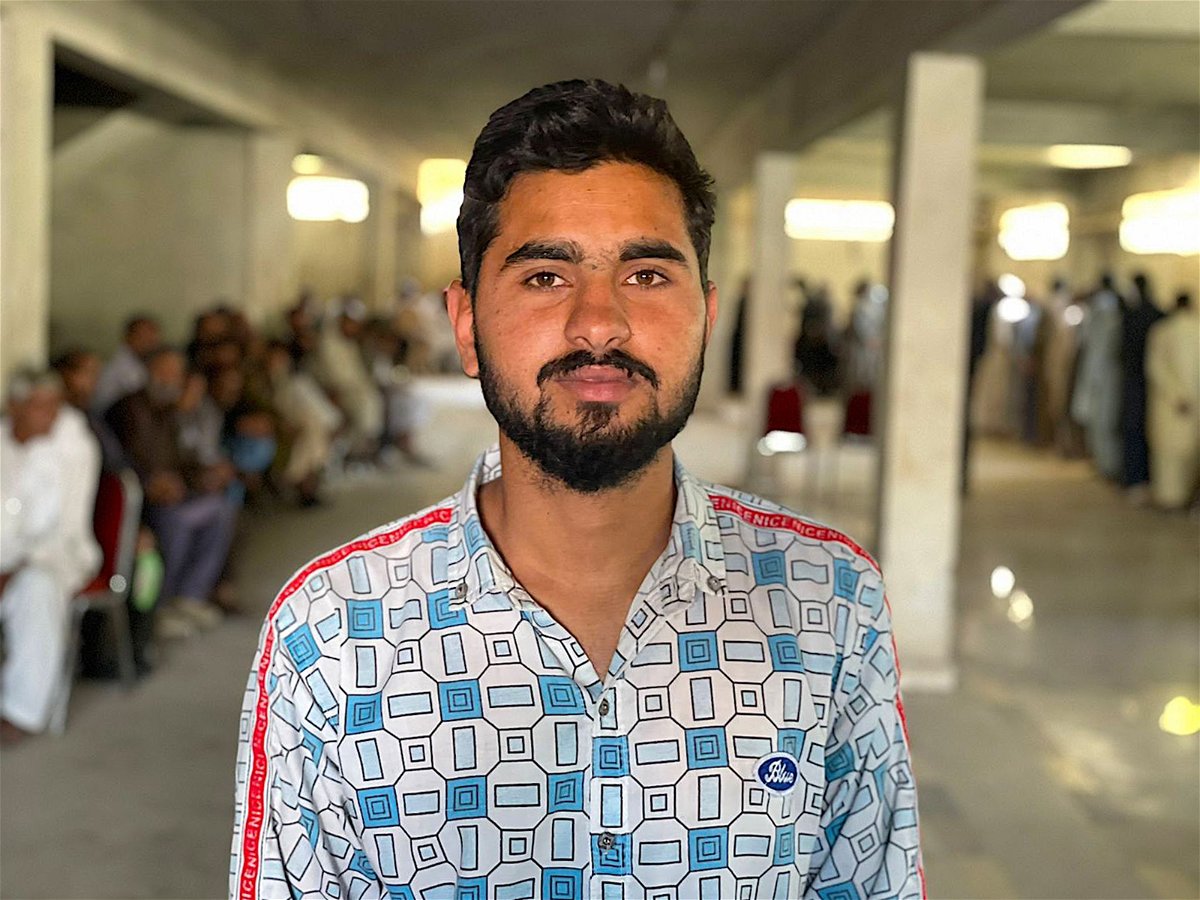An economic crisis in Pakistan means many are going hungry during Ramadan

Tech worker Waqas Chaudhry
By Sophia Saifi, CNN
In Pakistan’s capital, people are lining up in the hundreds for a single bag of free flour at a government distribution center during the holy month of Ramadan, which ends this week.
Amid record inflation and soaring poverty, Prime Minister Shahbaz Sharif announced a relief package in early March offering a bag of free flour to “to the poorest of the poor.”
Standing in line under the hot spring sun, 20-year-old Waqas Chaudhry, who works in the tech sector, has never had to ask for charity before in his life.
“Everything has become so expensive,” he told CNN. “It has become incredibly difficult just to survive.”
Over the past month, about two dozen people have died in the country while waiting for the food donations.
In Karachi, Pakistan’s financial center, 13 women and children died in March when hundreds of people caused a stampede in the rush for free food. Nine were killed in late March at separate government run flour distribution sites in the northwestern province of Khyber Pakhtunkhwa.
The Human Rights Commission of Pakistan has expressed concern at what it called “mismanagement” that caused stampedes at wheat flour distribution centers set up by the government.
Few in this nation of over 200 million have been spared by an economic crisis that started last year due to high inflation, a depreciating currency and low reserves of foreign currency, which are used to purchase imports like food and fuel.
One third of Pakistan’s farmland was affected after catastrophic floods last summer. According to the International Rescue Committee, 33 million people in Pakistan were affected by the severe flooding that has caused $40 billion in economic damage.
The government has been trying to reach agreement with the International Monetary Fund to restart a $6.5 billion loan program that has stalled since November, in an effort to keep the economy afloat.
The fund has presented a set of conditions in exchange for the release of a $1.1 billion loan installment. It includes liberalizing the rupee’s exchange rate and raising taxes.
‘Unsustainable’ program
Pakistan’s consumer price index rose to a record 35% in March from a year earlier, according to official figures.
The March inflation number eclipsed February’s 31.5%, the statistics bureau said, as food, beverage and transport prices surged up to 50% compared to last year. Staples like the price of flour, a staple of Pakistani diets, has doubled over the past year, according to the bureau.
Opposition leader and former Prime Minister Imran Khan has called the government’s flour distribution policy “unsustainable” and that it was “humiliating people.”
While Pakistan has lurched back and forth from multiple crises in recent years, the current economic hardships are especially acute. There is widespread discontent and despair.
According to a survey conducted by Gallup & Gilani Pakistan, just under three quarters of 2,000 respondents think the country’s economic situation has gotten worse over the last six months.
Ammar Khan, a senior nonresident fellow at the Atlantic Council, a Washington think tank, says several factors caused the rampant food inflation: surging global grain prices due to the war in Ukraine and a record drop in the value of the rupee against the US dollar which made imports more even expensive.
Khan said a shortage of basic imports such as animal feed and other raw materials essential for food production contributed further to the food crisis and widespread hunger.
He said a possible solution to the food crisis would require a successful deal with the IMF, which would allow access to US dollar funding and help more imports to flow back in.
Rampant smuggling
Smuggling has also contributed to food shortages.
Adil Mansoor, a food security analyst based in Karachi, said basic food items such as flour were being hoarded in Pakistan and smuggled across the heavily policed Afghan border in the country’s north to be sold for lucrative returns in Central Asia.
On Wednesday, Pakistan’s Interior Minister Rana Sanaullah reiterated the government’s “resolve” to take “strict action” against elements involved in smuggling.
Ramadan is a period of thanksgiving and shared meals, but the festivities have been overshadowed by the economic crisis. Charity is an important component of the holy month and each year soup kitchens lay out free iftars, the meal eaten after sunset to end the daily fast.
This year, according to the Saylani Welfare International Trust, a nongovernmental organization that provides free meals, the number of people relying on goodwill has doubled. There has been little to celebrate for many.
“We can’t pay our children’s school fees,” said Syed Naseer, a construction worker waiting at the soup kitchen. “We break our fast with just water and a date…other delicacies are only things we can dream about right now.”
The economic despair here won’t end with a bag of flour, as so many in Pakistan go to bed hungry this Ramadan.
The-CNN-Wire
™ & © 2023 Cable News Network, Inc., a Warner Bros. Discovery Company. All rights reserved.